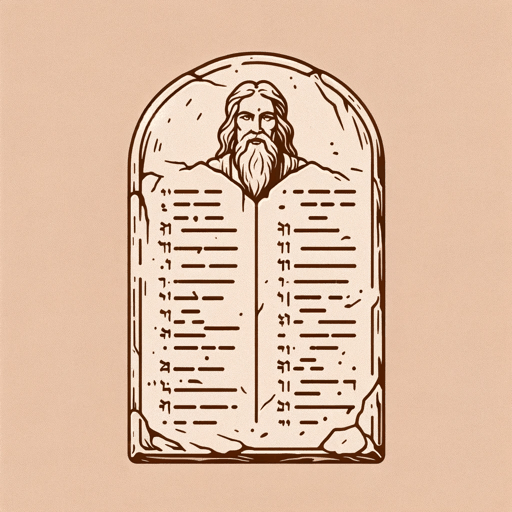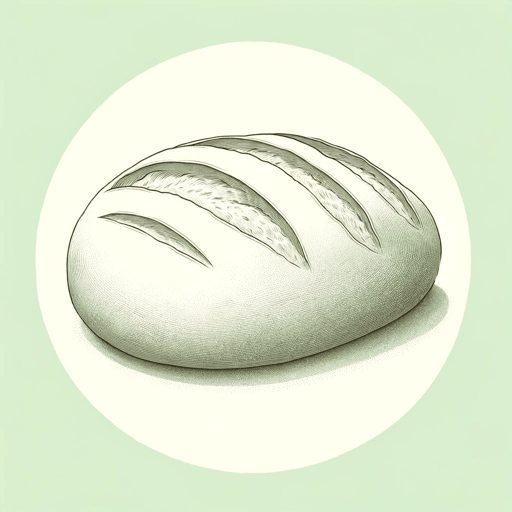65 pages • 2 hours read
Ed. Lyndon J. Dominique, AnonymousThe Woman of Colour: A Tale
Fiction | Novel | Adult | Published in 1808A modern alternative to SparkNotes and CliffsNotes, SuperSummary offers high-quality Study Guides with detailed chapter summaries and analysis of major themes, characters, and more.
Summary and Study Guide
Overview
The Woman of Colour: A Tale is an epistolary novel published anonymously in 1808. It tells the story of Olivia Fairfield, a biracial heiress who, in accordance with her father’s will, must travel from Jamaica to England and marry her white cousin. The author’s identity remains a mystery, although historical evidence indicates that the novel may well have been authored by a woman of color. While it received only moderate praise from critics at the time of its publication, The Woman of Colour is now considered important for its nuanced depictions of class and gender politics as well as its inclusion of a racially conscious female protagonist.
This guide refers to the 2008 Broadview edition of the novel, edited by Lyndon J. Dominique.
Content Warning: This guide refers to enslavement and discusses scenes from the source text that include anti-Black slurs, outdated and offensive terminology, and racist sentiments and language.
Plot Summary
In a series of letters to her former governess, Mrs. Milbanke, Olivia Fairfield describes her journey from Jamaica to England. Olivia’s mother was an enslaved African woman who died giving birth to her, and her father was the white enslaver who “owned” her mother. Olivia’s father has recently died, and his will stipulates that in order to receive her inheritance, Olivia must go to England and marry her cousin, Augustus Merton. However, if Augustus does not want to marry her, Olivia’s inheritance will pass to his brother, George. On the ship, Olivia and her Black servant, Dido, befriend Mrs. Honeywood and her son, Charles, British West Indians who are returning to England because of Mrs. Honeywood’s poor health. Charles is romantically interested in Olivia, but she sees him as a brother.
The ship lands in Bristol, England, where Olivia and Dido are met by Augustus Merton, his father, Mr. Merton, and his sister-in-law, Letitia Merton. The Honeywoods leave Bristol, and Olivia believes she will probably never see them again. Mr. Merton is polite to her, but Letitia is openly rude, often making cruel remarks about Olivia’s skin color and family history. Olivia finds Augustus very attractive, but she cannot tell whether he wants to marry her, as he is often melancholy and withdrawn. They attend a ball, where Olivia meets many of Bristol’s wealthiest people and finds herself disgusted by their shallowness and cruelty. She also teaches George and Letitia’s three-year-old son about skin color, explaining to him that just because she and Dido have darker skin does not mean they are dirty.
Augustus, whose feelings about the potential marriage Olivia still cannot figure out, decides to let Olivia and Mr. Merton decide how to handle Olivia’s father’s will. Olivia arranges a private conversation with Augustus and tells him she does not want to marry him if he would be unhappy doing so. Augustus insists he has great admiration for her, and they decide to move forward with the marriage, although Olivia is still worried that he will never love her. A storm hits Bristol during the wedding, which Olivia takes as a sign from God. Augustus and Olivia relocate to London and stay with the Merton family. Olivia explores the city and enjoys some of its attractions—particularly the churches—but she and Dido, who both miss the Fairfield Plantation in Jamaica, look forward to moving to the country.
At this point, an unnamed editor interrupts the narrative and says that because of a large gap in Olivia’s letters to Mrs. Milbanke, they have included two letters written by other characters. The first is from Letitia to a friend, Miss Danby: Letitia talks about how much she hates Augustus and Olivia and refers to a vague revenge plan. The second, from Augustus to a friend named Lionel Monkland, contains Augustus’s confession that he will never love Olivia because his heart will always be with his first wife, whom he married in secret. The narrative then returns to Olivia’s letters. She and Augustus have moved to New Park, a country estate in Devonshire, and are both much happier with their quiet, rural life. Their neighbors, the newly wealthy Sir Marmaduke and Lady Ingot and their teenage son, Frederic, live in a lavish home called the Pagoda, whose architectural design reflects Sir Marmaduke’s business ventures in India. They also spend time with Colonel and Miss Singleton, an elderly brother and sister obsessed with looking younger than they are. Around this time, Olivia hears that Mrs. Honeywood has died.
At a dinner party at the Pagoda, a young woman named Almenia Danby flirts aggressively with Augustus and asks him about a woman named Miss Forrester. Augustus, clearly uncomfortable, says that Miss Forrester is dead. At the same party, Olivia meets Mr. Waller, tutor to Frederic Ingot, as well as an eccentric older man named Mr. Bellfield. After the party, she continues developing relationships with her neighbors, including the modest, industrious Lumley family. Mr. Lumley is the local clergyman, and Olivia becomes especially close to 17-year-old Caroline Lumley. Caroline and Olivia plan to open a school for the villagers. Mr. Waller is tentatively courting Caroline, who reciprocates his feelings.
Letitia writes to Olivia, saying she plans to visit New Park. Olivia also hears that a mysterious woman has moved into an isolated cottage on the property. She learns that Mr. Bellfield is Marmaduke Ingot’s impoverished uncle and that the Lumleys have convinced Caroline and Mr. Waller not to marry because Sir Marmaduke might arrange a better match for Mr. Waller. Letitia arrives at New Park, and Olivia interrupts one of her letters to Mrs. Milbanke to announce that she has experienced a terrible personal tragedy. She reveals that six weeks have passed since she has last written and reflects sadly on how happy she once was with her picturesque life. Soon after Letitia’s arrival, a storm hits New Park and destroys many of the estate’s trees. At Letitia’s urging, Olivia and Augustus check on the woman living in the cottage; as they approach, the woman runs outside and into Augustus’s arms. Olivia realizes she is Angelina Forrester, the woman Augustus loves, and faints.
When she wakes, Augustus has gone to live with the Lumleys, having been cut off by Mr. Merton for concealing his marriage to Angelina. Olivia knows her inheritance will pass to George and Letitia and decides to leave New Park with Dido. She rents a cottage on the Welsh border, and with Mr. Merton’s help, arranges for George to send her 50 pounds every three months. Before leaving New Park, she confronts Augustus, who feels miserable and ashamed of his part in ruining Olivia’s future. She forgives him, and together, they visit Angelina and the pair’s two-year-old son. Olivia gives her blessing to the couple. She leaves for Wales, embracing the quiet simplicity of her rural life, but grieves the loss of her marriage and continues thinking of herself as Augustus’s wife.
Through letters from Caroline Lumley, Olivia finds out that Mr. Merton is dying and has summoned Augustus to London. One day, Charles Honeywood unexpectedly knocks on Olivia’s door; she learns that Dido had discovered Charles lived nearby and invited him to call on Olivia, hoping that the two would start a romantic relationship. Charles confesses his love for Olivia, but she does not feel the same way and tells him they cannot have further contact. He leaves brokenhearted.
Olivia learns that Mr. Merton has died without a will, leaving his fortune to be shared equally between George and Augustus. Suddenly staggeringly wealthy, George gives up his claim to Olivia’s inheritance. Olivia also hears that a wealthy great-nephew of Mr. Bellfield has invited the old man to move in with him. Finally, she receives word from Augustus of Letitia’s role in the collapse of their marriage. She rewrites the narrative and includes it in a letter to Mrs. Milbanke. When she was a teenager, Letitia, the spoiled only child of the self-made Manby family, demanded that her parents bring her a friend. Her parents arranged for Letitia’s cousin, the demure, modest Angelina Forrester, to come live with them in London. Meanwhile, the Manbys tried to arrange a marriage between Letitia and George Merton, having become acquainted with the Merton family through shared business interests. Letitia, however, fell in love with Augustus Merton, and Augustus fell in love with Angelina. Augustus and Angelina married in secret, and when the jealous Letitia found out, she allied with her mother and Mr. Merton to have Augustus sent to Ireland, ostensibly on business. They told Angelina that Augustus knowingly married her illegally and then abandoned her. They sent Angelina to live in a remote cottage, where she gave birth to the couple’s son. Augustus was led to believe his wife died, and Letitia married George. After making this confession, Letitia recovers from her illness.
Olivia discovers that Charles Honeywood is Mr. Bellfield’s great-nephew. Mr. Bellfield tries to convince Olivia to give Charles a chance, but Olivia refuses. Mr. Bellfield begins visiting her regularly, telling her the story of Mrs. Honeywood, which Olivia includes in her own letter in another standalone narrative. Sophia Honeywood and her brothers—one of whom is Marmaduke Ingot—were raised by Mr. Bellfield after their parents died. She married the unstable, irresponsible Mr. Honeywood, who had business interests in Jamaica, and soon after she left England, Charles was born. The stress of her unhappy marriage led to a decline in Sophia’s health, and she and Charles returned to England for many years. After Mr. Honeywood lost his fortune and died in Jamaica, the two returned to the island to settle his accounts and then met Olivia on the return trip. After his mother’s death, Charles inherited a large fortune from another distant relative, ultimately moving to his Welsh estate and discovering Dido and Olivia’s residence nearby.
Olivia, having reclaimed her inheritance, decides to return to Jamaica and help improve the lives of local people of color there. As she and Dido plan to leave, she expresses fondness for England, which she sees as a liberal country that embraces the arts, the law, and education, and which has produced some of the people she most loves, including Augustus Merton.
Related Titles
By these authors

Arabian Nights
Anonymous

Arden of Faversham
Anonymous

A Woman in Berlin
Anonymous

Bible: New Testament: English Standard Version
Anonymous

Bible: Old Testament: English Standard Version
Anonymous

Deuteronomy
Anonymous

Diary of an Oxygen Thief
Anonymous

Do Not Stand at My Grave and Weep
Anonymous

Everyman
Anonymous

Hebrew Bible
Anonymous

Holy Bible
Anonymous

Homeric Hymns
Anonymous

Judith
Anonymous

Laxdaela Saga
Anonymous

Lazarillo De Tormes
Anonymous

Mahabharata
Anonymous

Nibelungenlied
Anonymous

Njals Saga
Anonymous

One Thousand and One Nights
Anonymous

Popol Vuh
Anonymous
Featured Collections
Black History Month Reads
View Collection
Books that Feature the Theme of...
View Collection
Colonialism & Postcolonialism
View Collection
Colonialism Unit
View Collection
Equality
View Collection
Fate
View Collection
Historical Fiction
View Collection
Marriage
View Collection
Valentine's Day Reads: The Theme of Love
View Collection

